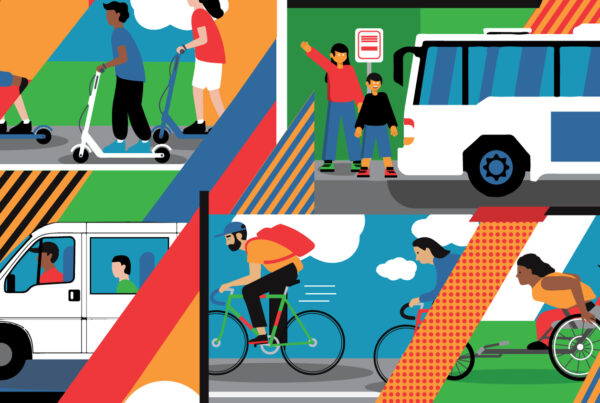The University of California, Berkeley’s Transportation Sustainability Research Center (TSRC) – SUMC’s research partner – recently released a car-sharing outlook and analysis that explores several interesting developments within this growing industry.
Trends addressed in UC Berkeley’s report include:
–Continuing industry growth: U.S. membership in car-sharing companies increased an impressive 34 percent from July 2013 to July 2014. There are currently more than 1.3 million car-share members in the United States and more than 19 million car-share vehicles.
–Rise of one-way car-sharing: Nearly 25 percent of North American fleets are now one-way trip capable. Zipcar announced that it would launch a one-way service in select markets in late-2014 and SHIFT car-sharing in Las Vegas will also feature one-way options.
–Electric vehicles: Two new electric vehicle car-sharing programs are set to launch soon in Indianapolis and Las Vegas. Indianapolis’ program will feature vehicles manufactured by French auto company Bolloré that can travel 150 miles on a single charge and enable users to find and reserve parking, save radio station pre-sets and more.
In addition to the trends reviewed in the report, the car-sharing industry is undergoing several other changes, including:
–Decline of industry nonprofits: For-profit car-sharing companies represented only 48 percent of U.S. operators, but accounted for 98 percent of members, according to TSRC’s report. Large nonprofit operators like Philly Car Share and IGO CarSharing have been sold, leaving other large rental car companies, car manufacturers and small community nonprofits to serve the car-share industry.
–Developments in P2P: Some peer-to-peer car-sharing operators have moved to providing only rentals for a full day or longer, functioning more like rent-a-car operators than typical car-share companies. However, others have continued to use more traditional P2P car-sharing models.
–Ride-sharing vs Car-sharing: As ride-sharing companies expand into communities across the U.S., more residents in cities with dense urban cores have begun to use services like Uber and Lyft to replace short car-share trips.
We look forward to tracking the progress of car-sharing as it continues to mature as an industry and will share more developments here as they arise.


